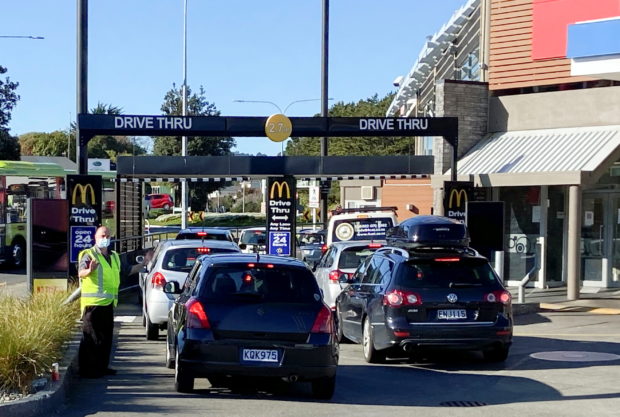New Zealanders venture out as COVID-19 curbs eased in most regions

People queue up for takeaway food as a nationwide coronavirus disease (COVID-19) lockdown eases in Wellington, New Zealand, September 1, 2021, REUTERS
WELLINGTON — New Zealanders on Wednesday visited beaches and queued for takeaway food as tough lockdown measures enforced to beat an outbreak of the highly infectious Delta variant of the coronavirus were eased for most of the country.
About 1.7 million people in the largest city Auckland still remain in strict level 4 lockdown for another two weeks, but restrictions for the remainder of the country were loosened.
Surfers and kayakers were seen heading to the beaches in droves, local media reports said, while other outdoor recreation facilities like golf courses were busy again.
People started lining up from early morning as takeaway food outlets reopened after being shut for two weeks, while construction activity resumed and large hardware stores opened for click and collect purchases.
However, schools and offices remained shut nationwide and businesses can only provide contactless services.
Article continues after this advertisementExcept for a small number of cases in February, New Zealand was largely coronavirus-free until the outbreak of the Delta variant prompted Prime Minister Jacinda Ardern to order a snap nationwide lockdown on Aug. 17.
Article continues after this advertisementThe country reported 75 new cases of COVID-19 cases on Wednesday, up from 49 a day earlier. Of those, 74 were in Auckland and one was a household contact in Wellington. The total cases from the current outbreak rose to 687, nearly all in Auckland.
“The latest bounce in numbers is not unexpected,” the Director General of Health Ashley Bloomfield said at a news conference, adding it was still below the peak daily number.
Ardern’s lockdowns, along with closing the international border from March 2020, have been credited with reining in COVID-19 allowing the country to live largely without restrictions.
However, the government now faces questions over a delayed vaccine rollout, as well as rising costs in a country heavily reliant on an immigrant workforce.
Just over a quarter of the population has been fully vaccinated so far, the slowest pace among the wealthy nations of the OECD grouping.